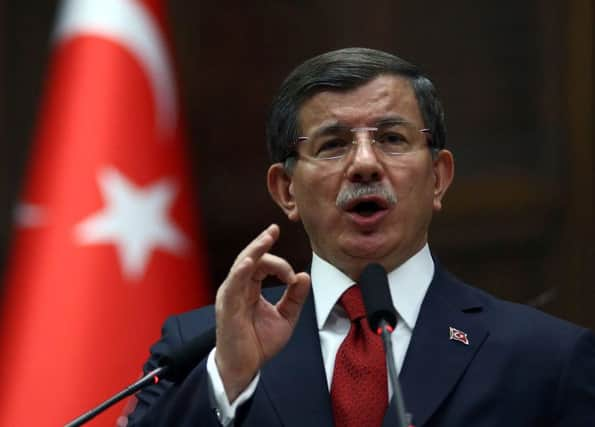Turkish PM Ahmet Davutoglu to quit after falling out with president


“I decided that for the unity of the (ruling party) a change of chairman would be more appropriate. I am not considering running at the 22 May congress,” Mr Davutoglu told the nation.
Mr Davutoglu, who had fallen out with president Recep Tayyip Erdogan, announced he was stepping aside following a meeting with executives of the ruling Justice and Development Party, or AKP, which has dominated Turkish politics since 2002.
Advertisement
Hide AdAdvertisement
Hide AdThe decision is not effective immediately. The party will hold an emergency convention on 22 May to select a new party leader who would also replace the premier.
Mr Davutoglu indicated he did not plan to resign from the party, saying he would “continue the struggle” as a ruling party legislator. He also pledged loyalty to Mr Erdogan, saying the president’s honour was his honour, and suggested he would not be a party to any efforts to divide the party.
“I feel no reproach, anger or resentment against anyone,” Mr Davutoglu said.
The shake-up is seen as the outcome of irreconcilable differences between Mr Erdogan, who would like to see the country transition to a presidential system, and his once-trusted adviser. It comes a day after Mr Davutoglu’s government scored a victory of sorts, with the European Union’s executive commission recommending approval of a deal to give Turkish citizens the right to travel to Europe without visas.
After being elected president in 2014, Mr Erdogan chose Mr Davutoglu to succeed him as premier and leader of the AKP party. Mr Davutoglu was expected to play a backseat role as Mr Erdogan pushed ahead with plans to make the largely ceremonial presidency into an all-powerful position.
But the former professor, foreign minister and adviser to Mr Erdogan tried to act independently on a range issues and often proved to be a more moderating force to Mr Erdogan, who has adopted an increasingly authoritarian style of government.
Crisis talks between the former political allies dragged out for nearly two hours late Wednesday but clearly failed to resolve their differences.
Divisions between the Erdogan and Davutoglu camps first spilled into the open over the conflict with Kurdish militants in the southeast.
Mr Erdogan took issue with Mr Davutoglu after he spoke of the possibility of resuming peace talks with the PKK if it withdraws its armed fighters. Erdogan said it was out of the question.